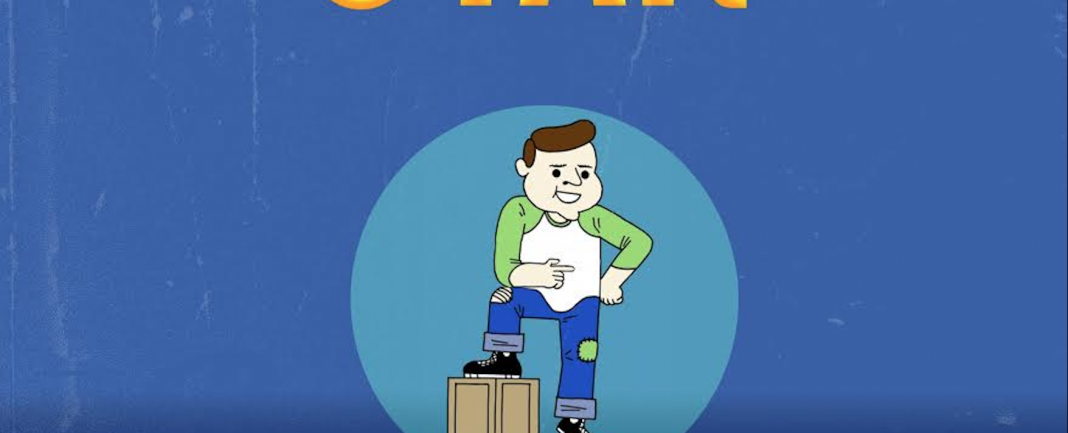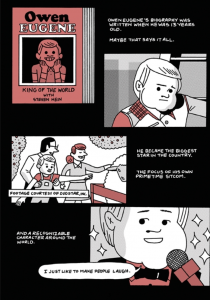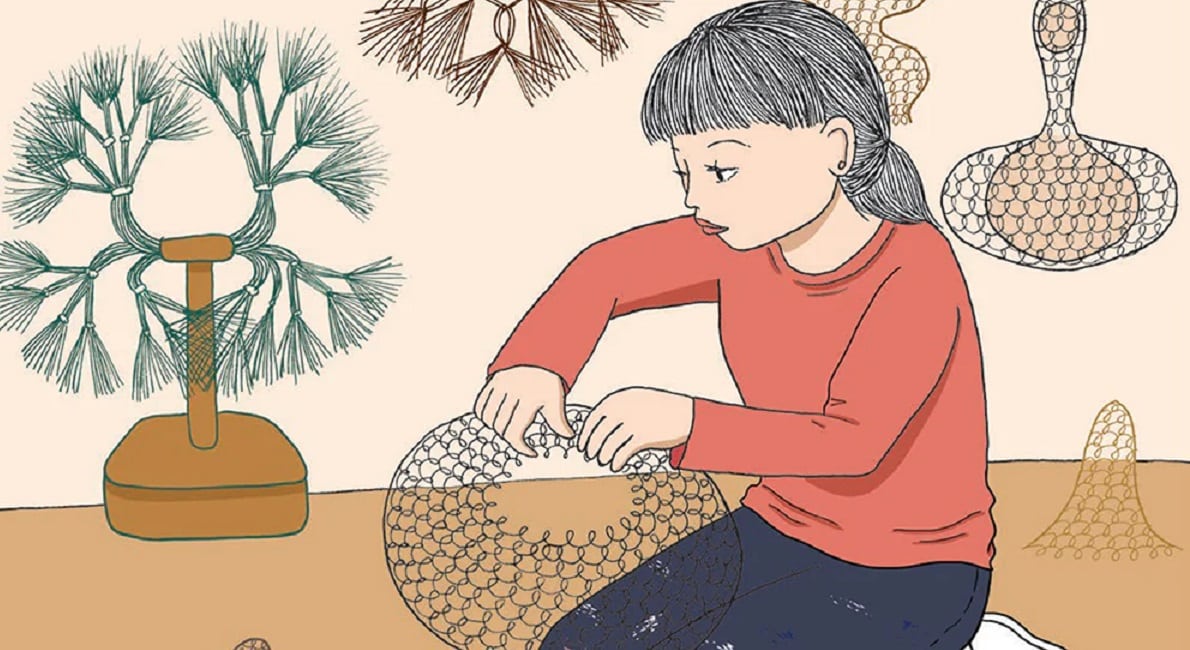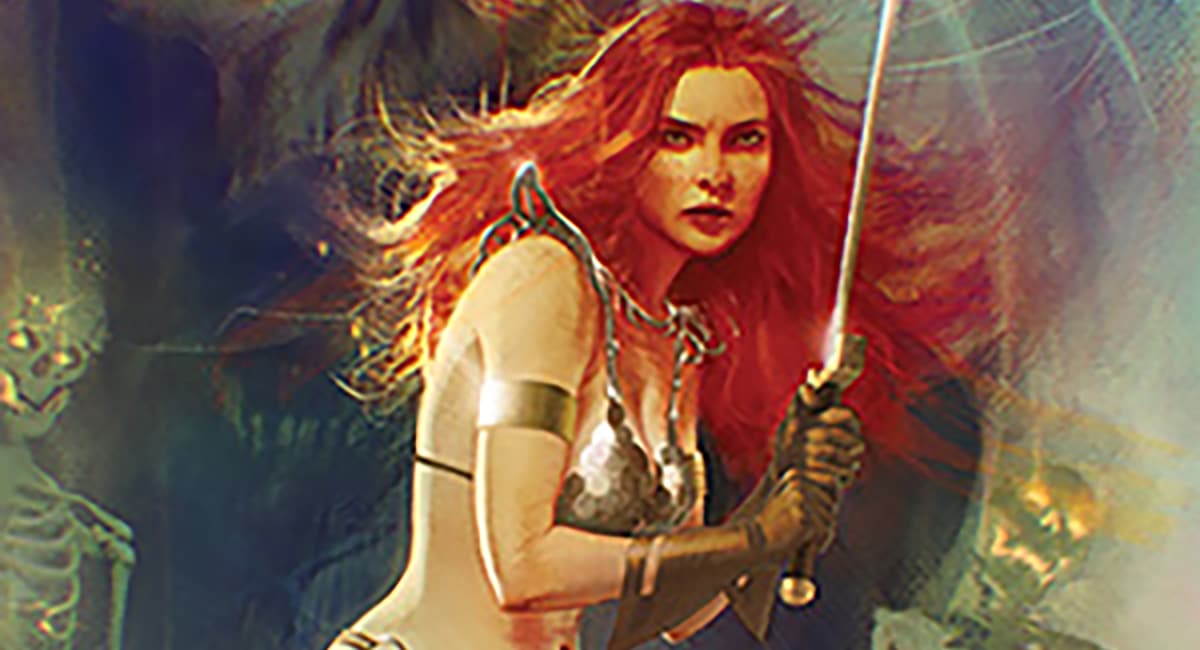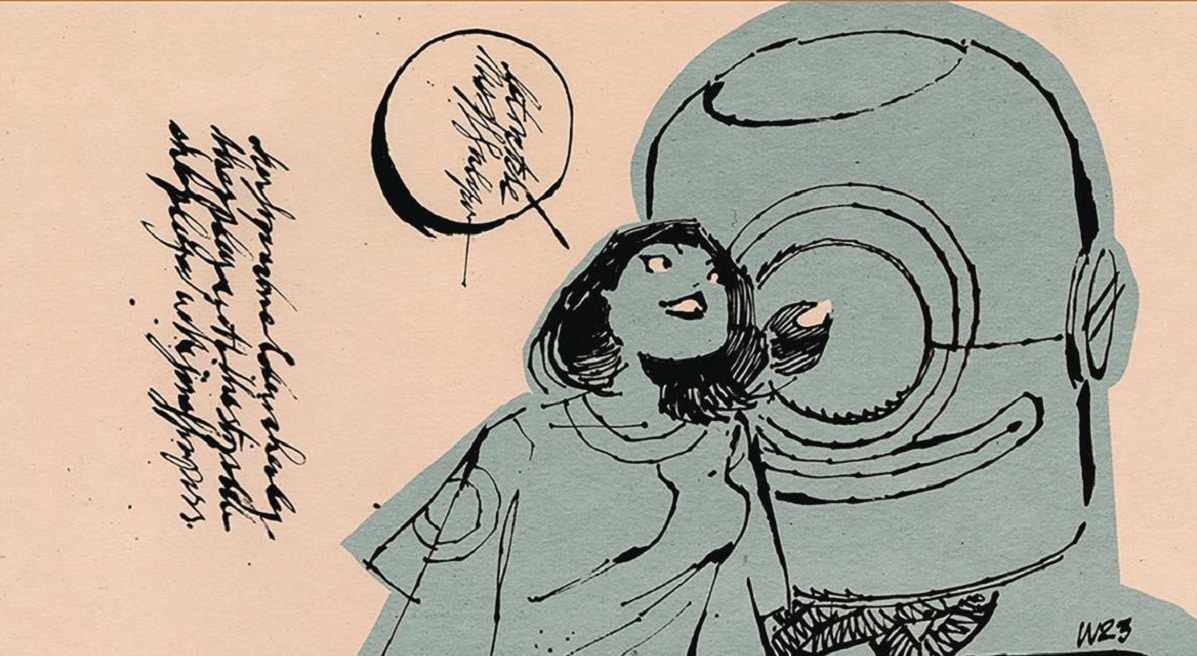The life of young Hollywood actors, ironically, follows a pretty standard script. The world treasures a cute, (seemingly) innocent face, and will fall head over heels in love with any child who is able to match wits with adults. We’ve seen this story play out in cheap tabloids and tawdry documentaries for decades. The 1980s were a particularly fecund time for light and distracting TV sitcoms. Perfect families with perfect lives where conflict was solved in half an hour or less were the currency. Even with the Reagan Administration paying little attention to the growing crack epidemic and the AIDS crisis, most people were happy to tune in to see the silly adventures of their favorite characters.
Brian “Box” Brown, one of the most prolific cartoonists of our age, has been fascinated with child actors since his own days as a boy. The writer of several fascinating nonfiction histories and biographies, Brown has turned his attention to fiction with the engrossing and heartbreaking Child Star. Published by First Second, Child Star follows the life of Owen Eugene, the eponymous young actor whose drive for fame lands him on a wildly-successful sitcom and featured roles in film and animation, and whose charming life leads down extremely dark avenues. Told in a faux-documentary style (this would have been the perfect programming for the E! Network had Owen Eugene been real), Brown stretches his storytelling chops for a tour de force piece of graphic fiction. I was fortunate to chat with Brown about the book.
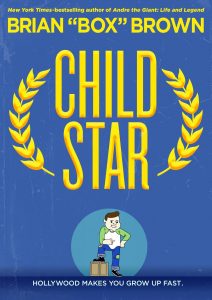
AJ Frost: One of the major themes of Child Star is juxtaposition. Sitcom stars have perfect lives, but Owen Eugene lives a difficult and painful life. What is it about the stark contrast between the bright existence of television sitcom characters and the dark lives of the actors that played them that appeals to you as a storyteller?
Brian “Box” Brown: Believe it or not I think it all goes back to pro-wrestling. It was such an obvious con — even as a kid I knew it was “fake” but whenever I’d hear a real-life story of a wrestler it was mind-blowing. I think this plays into how I view a lot of media. People don’t want to admit it all the time, but there are many elements of pro-wrestling characterization and “kayfabe” in all media. I think the idea of being let into a special club with real information is enticing to people. It’s one of the reasons conspiracy theories abound. No matter how much people remind themselves that the people on TV are completely normal human beings they’re still entranced by their inner-workings.
I think we also develop a special aura around the stars and media we consume as children. This media exists in an upper-echelon of our personal tastes. Adults will often ignore all of the flaws of a piece of media if they enjoyed it at a certain moment in their lives. So, if that is the case, you become particularly injured by the misdeeds of these stars.
Frost: Although this book is fiction, it’s heavily researched to give it proper verisimilitude (which, I must say, you pull off brilliantly). In your mind, who is Owen Eugene’s progenitor? What are the influences from that time period that you were drawn to the most?
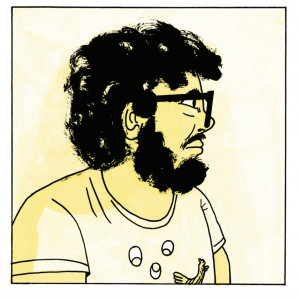
Brown: The project began in many different places. Five or six years back I watched a documentary called The Hollywood Complex which was about a hotel for child actors who come to LA for pilot season. It is an excellent look at this lifestyle, it’s non-judgmental and really delightful. I think that got things stirring. And for years I’ve been re-watching sitcoms, like decades really, Growing Pains, Mr. Belvedere, Silver Spoons, Wonder Years and of course Diff’rent Strokes. Then in 2017, I was watching Diff’rent Strokes and my son was born. I was doing little drawings of him and watching Diff’rent Strokes and thinking about Gary Coleman and what if my son was in that situation. So, [the book] follows some of the ups and downs of Coleman’s life for sure. But it’s also inspired by Macaulay Culkin, who was more of the big child actor when I was actually a kid. Lots of others were inspirations too: Corey Feldman, Jaleel White, Fred Savage, Soleil Moon Fry, Dustin Diamond, David Faustino, Michael J. Fox, and more recent stars like Shia LeBoeuf and Leonardo DiCaprio.
When I was a kid, I liked any show with a kid in it. I instantly would identify with the child and I would legitimately try to re-enact the things I saw in my own life. I would repeat the jokes and say and do the things the kids in the show did. I don’t think this is uncommon. Macaulay Culkin was everywhere when I was a kid: SNL and Wrestlemania VI and commercials, etc., everywhere. I wanted to be there I think. I wanted to be not where I was.
But then, child actors get older and change. We as a society punish these people further by shunning them or expecting them to never age or change or be different from our rosy memories; it’s totally unfair. No matter what they might get into later on in life it’s always seen as a downfall. I think I was drawn to that unfairness and how child actors are children first and deserve protection and often don’t get it.
Frost: It’s brilliant that your first work of fiction is structured like a documentary, one of the most compelling non-fiction mediums. Why structure the graphic novel in this way? How did that idea coalesce?
Brown: It started purely as a challenge to myself. Some of my favorite documentaries aren’t particularly visually interesting and feature a lot of simple interviews with people talking and I wanted to see if I could make that interesting enough to work as a comic. This was really challenging and I developed a lot of little techniques to make a first-person account visually interesting. If I was making it as a film, I’m not sure if I’d have the budget to go on-site to film a former studio executive fly fishing while I interviewed them.
Frost: I hope this is not too much of a spoiler, but your main character, Owen Eugene, never utters a word in the book that is not based on “footage” of him. Why silence him?
Brown: I didn’t so much want to silence the character, just let him speak only via what Owen Eugene’s audience would have been able to see. There is no all-knowing narrator in the book. Owen Eugene’s actual feelings are a mystery and we only know him by what people say about him and what he presented to the camera. I felt that him participating in what’s ostensibly a documentary of his life would make his opinion not trustworthy. It’s like with the recent Michael Jordan documentary [The Last Dance]: I enjoyed it thoroughly, but MJ had the final cut on what went into it. He participated but was able to display even his most negative moments into his version of events if he wanted. It was like when I was making the Andre the Giant book. I wanted to explore his legacy, which was largely via word of mouth. I saw Owen Eugene as a similar character as Andre.
Frost: Child Star’s 1980s setting allows you to play with a lot of historical events and figures; the Reagans are surprisingly present at many points within the comic; the Space Shuttle Challenger disaster makes a stunning appearance. What was it like for you to piece the history of that time back together to create the narrative flow of the book?
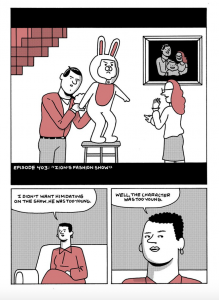
Frost: Child Star takes an unapologetic look at the economy behind young actors and the toll it takes on them psychologically, socially, and financially. The characters throughout the book lament the dark nature of their industry and the world. Would you say that your view of Hollywood—not that of the characters’—is as cynical?
Brown: I don’t think I am quite as cynical as the book might suggest. Sometimes I even think of myself as an optimist. I believe that people have inherent goodness in them. But, sometimes I view things bleakly. I started thinking about nepotism, Harvey Weinstein, racism in film and TV. I could let myself go into a black hole pretty easily. I can also become a snob about film and TV pretty quickly. I think it’s a really powerful medium and it’s something I engage in regularly and probably always will. I would definitely describe my view as maybe not cynical but definitely skeptical
Frost: In the afterword to the book, you talk about the nostalgia that television sitcoms engender in yourself, and indeed, millions of other people. What are the qualities that keep you coming back to these old shows?
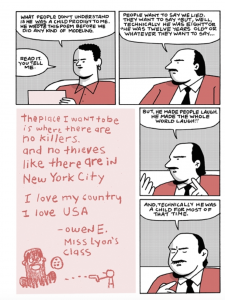
I try to limit how much I get into old shows and stuff nowadays. I have this thing I call “Nostalgia Afternoon” at around 2 pm. While I work I listen to podcasts, YouTube, music, news, etc. I allow myself a few hours to watch some stupid old TV show or whatever (mega-mix of commercials from 1986?) but I try not to spend too much time on it. But at the same time, it may be one of the great joys of life? It’s the same reason I bought 3 or 4 Pee-Wee’s Playhouse figures this year.
Child Star by Brian “Box” Brown is available now from First Second.


